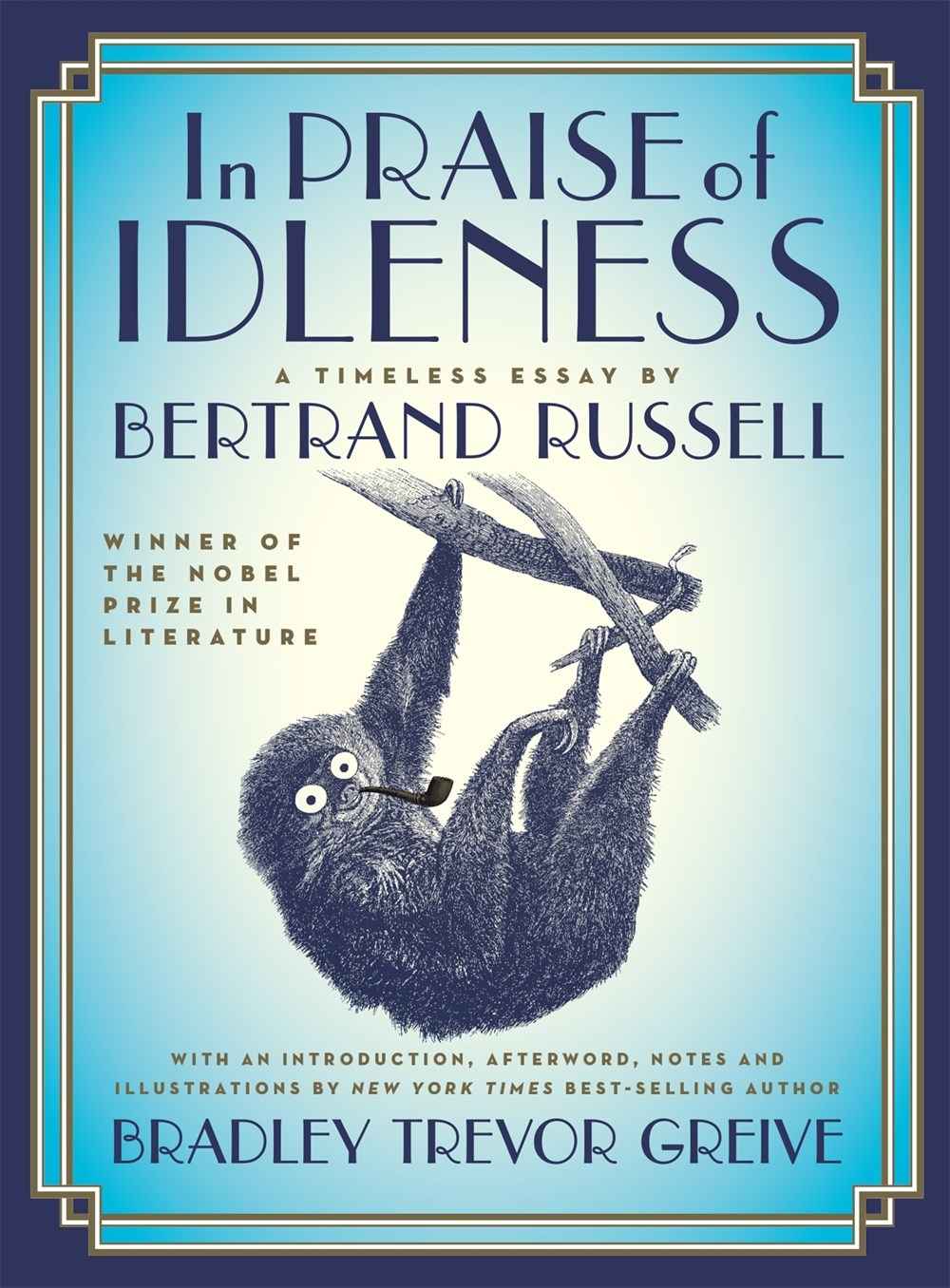In Praise of Idleness

Editorial Thomas Dunne Books
Fecha de edición junio 2017 · Edición nº 1
Idioma inglés
Ilustrador Greive, Bradley Trevor
EAN 9781250098719
192 páginas
Libro
encuadernado en tapa dura
Resumen del libro
With a new introduction, afterword, and comic illustrations throughout, New York Times bestselling author and humorist Bradley Trevor Greive gives new life to Bertrand Russell's essay.
Bertrand Russell is considered the Voltaire of his time, and Bradley Trevor Greive is considered one of the funniest people of his. Russell was a Nobel Laureate, and Greive is a New York Times bestselling author. Together, with Russell bringing the philosophy and Greive bringing the hilarious commentary, this book is a classic.
In his celebrated essay, In Praise of Idleness, Russell champions the seemingly incongruous notion that realizing our full potential and thus enjoying the greatest possible success and happiness is not accomplished by working harder or smarter, but through harnessing the extraordinary power of idleness.
Russell's penetrating insights and exquisite turns of phrase feel as fresh and relevant today as when they were first written. Arguing that we can achieve far more by doing far less and that traditional wealth accumulation is a form of cultural and moral poverty, Russell demands greater depth from our age of abundant creativity and heralds the next wave of enlightened entrepreneurs.
Biografía del autor
x{0026}lt;P x{0026}lt;B Bertrand Russellx{0026}lt;/B nació en Trelleck Gales, Inglaterra, en el seno de una familia perteneciente a la nobleza. Perdió a sus padres a la edad de tres años y fue educado por sus abuelos paternos. Su abuelo, lord John Russell, fue primer ministro de Inglaterra en dos ocasiones. Recibió una educación muy esmerada y se especializó en filosofía y matemáticas. Trabajó como profesor en diferentes universidades y dio muchas conferencias. Se casó cuatro veces, sus tres primeros matrimonios acabaron en divorcio. Tuvo tres hijos. En 1903 publicó su primera obra, x{0026}lt;I Los principios de las matemáticasx{0026}lt;/I . A Russell se le considera como uno de los padres de la Filosofía Analítica moderna. En el campo de la filosofía sus pensamientos giraron inicialmente alrededor del Idealismo Absoluto y más tarde del Atomismo Lógico y del Realismo, lo que le valió el Premio Nobel en 1950. Fundador del movimiento Pugwash (con Einstein, 1953), contra el armamentismo nuclear, destacó por sus avanzadas concepciones pedagógicas en una sociedad excesivamente puritana. Entre sus obras destacan, además de x{0026}lt;I La conquista de la felicidadx{0026}lt;/I , x{0026}lt;I Sobre educaciónx{0026}lt;/I , x{0026}lt;I Matrimonio y moralx{0026}lt;/I y x{0026}lt;I Teoría y práctica del bolchevismox{0026}lt;/I .x{0026}lt;/P








